Created by NewYorkSocialWorkEDU.org Contributing Writer
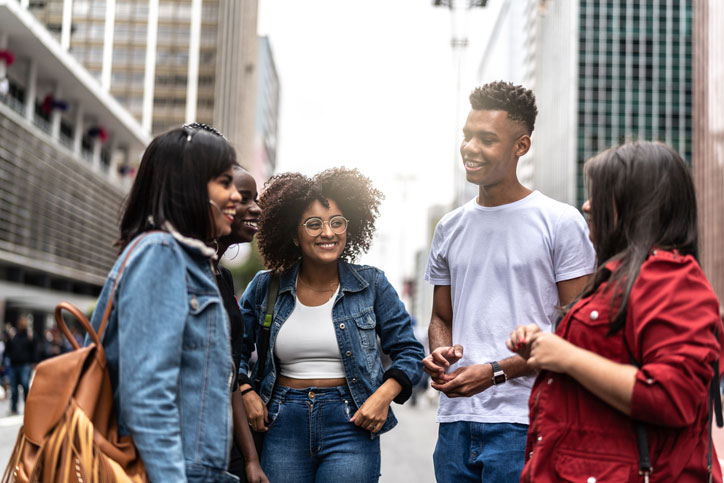
One of the secrets to the success of social work as a profession is that no social worker tries to do everything themselves. You likely have already come to know — both by training and your own inclination — that we’re better and more effective together than alone.
So one of your first steps into professional social work in New York, even before you complete your education in the field, should be getting cozy with the various resources you can tap into for both yourself and your clients.
Many of those clients, by the very nature of the job, will belong to various marginalized groups. In many cases, they will even overlap… persons of color who are incarcerated, immigrants who are lesbian or gay, indigenous individuals experiencing homelessness.
Finding the right programs to help them will be a significant part of the work you do every day in the course of your social work career. You can start developing an edge by simply getting familiar with this list of resources for BIPOC and other marginalized groups in New York.
New Social Work Support Resources Emerge Throughout New York All the Time and in Unexpected Places
 This is just a selection of some of the most well-funded and well-known of the many support resources for marginalized communities that you will find in New York. That larger pool of resources, however, is always changing and evolving. New needs come up; social workers with new ideas for helping with existing problems found new non-profits.
This is just a selection of some of the most well-funded and well-known of the many support resources for marginalized communities that you will find in New York. That larger pool of resources, however, is always changing and evolving. New needs come up; social workers with new ideas for helping with existing problems found new non-profits.
Getting out to where the population you serve is found is the prime directive for social workers. As the web has evolved, so has the place to look for resources.
Not only that, but you will start to notice that the places to connect with these resources are changing, as well. No longer are old-fashioned websites the place to get services or information when dealing with many cutting-edge social services organizations… you’re as likely to find them on Facebook, Instagram, or Tik-Tok.
It’s encouraging to find so many hands reaching out to help so many people in need. No matter where you turn or how you find them, there are plenty of organizations in our community working hard to help those who need it most. Why New York Support Systems for BIPOC and Other Marginalized Communities Are Naturally Intersectional
Of course, you won’t find any shortage of national organizations that are focused on these same issues. Often, they will have greater attention and more resources to throw at the problems.
But as with the old saying that all politics is local, you can make a good case that all social work happens in communities. There are uniquely New York considerations that apply when thinking about social justice and equity for all of these marginalized groups. Whether that is a center for LGBTQ+ individuals that understands the unique history in the fight for gay rights and the final line in the stand at Stonewall, or an immigrant advocacy group that knows first-hand the plight of refugees and how to navigate the byzantine shelter rules in the city, it means more effective service for your clients.
Many of the available resources for marginalized communities cover more than just one kind of discrimination or disorder.
Like many social workers themselves, you’ll find that plenty of these organizations don’t deal with just one sort of group or issue. Recognizing that many of the problems facing society today are a complex mix of various biases, systemic injustices, and types of neglect, many New York social services organizations deliver a range of services designed to help all kinds of marginalized communities.
Resources for Social Workers Assisting Black, Indigenous, and People of Color (BIPOC)
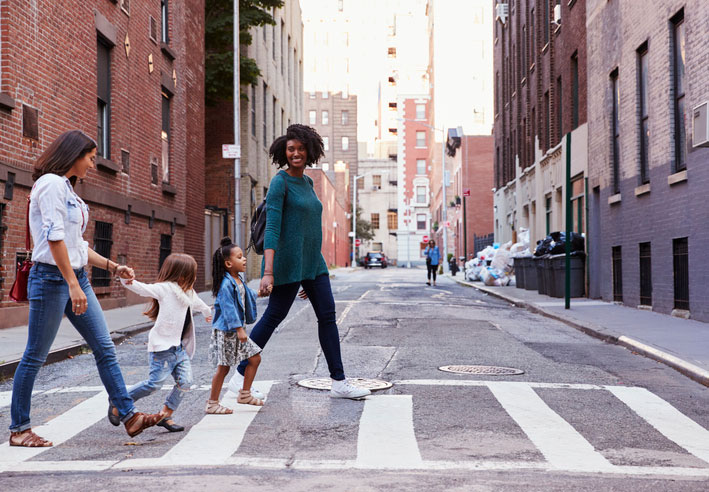
New York is a colorful place. By pretty much any measure, there are parts of New York City that are the most diverse places in the world when it comes to culture and ethnicity.
Often, New Yorkers rightly celebrate and appreciate this diversity. But unfortunately we all live in a culture where there continue to be systemic biases and discrimination against BIPOC individuals and associated cultures.
These New York organizations can help you get a handle on those biases and to fight discrimination as it must be fought: together.
Brooklyn Rescue Mission Urban Harvest Center
In a place as diverse as New York, social workers quickly come to understand the importance of intersectionality in support services. You’ll find it through resources like the Brooklyn Rescue Mission’s Urban Harvest Center, which fights both racism and food insecurity as they feed the primarily BIPOC hungry, hurting, and homeless population in Central Brooklyn.
New York City Black Deaf Advocates
Being BIPOC can be challenging enough in American society without adding the stigma and challenges of disabilities. Assisting Black individuals with hearing loss is the special mission of the New York chapter of BDA, which offers mentors to assist students with that unique set of challenges.
Therapy For Black Girls
Although it’s not specific to New York, this national database of therapists who are culturally competent in connecting with Black girls has plenty of New York names on it. For quick access to therapy resources for your clients in that category, it can be indispensable.
Black Trans Travel Fund
When you take the risk and uncertainty that comes from Traveling While Black and compound it with the misogyny experienced by many trans individuals, you have a recipe for trouble. The Black Trans Travel Fund offers Black transgender women, whether that’s your clients or yourself, with the financial and material resources to find safer transportation options.
Alliance Psychological Services of New York
Therapy resources for New Yorkers aren’t hard to find. But a majority BIPOC-owned worker cooperative with sliding scale rates for clients with a limited ability to pay is something that every social worker engaged in BIPOC mental wellness should be aware of.
The City Fellowship
A joint effort of the New York City Economic Development Corporation and Company Ventures, this initiative supports BIPOC social entrepreneurs taking action on issues of climate action or economic equity for marginalized populations in New York.
Resources for Lesbian, Gay, Bisexual, Transgender, Questioning, Intersex, Asexual, and Two-Spirit Individuals
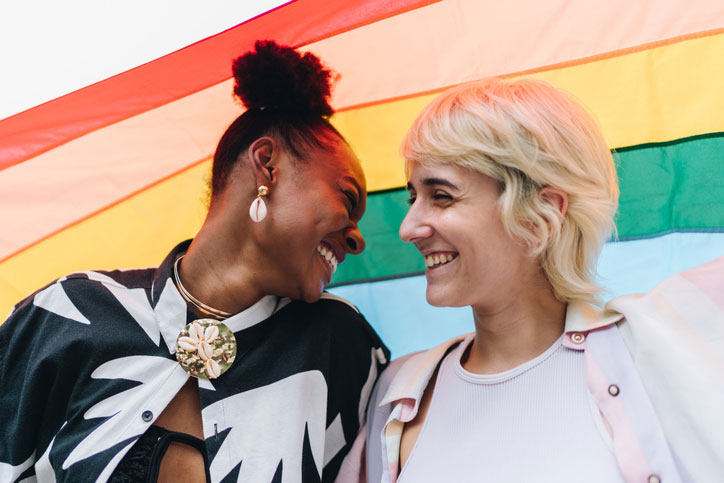
On top of and woven around every other kind of racial and ethnic tapestry in New York are gender and sexuality issues. Somewhere between two and seven percent of the population identify as same-sex oriented and/or having a gender other than what was assigned at birth. Some significant percentage of those people end up in New York.
There’s nothing in science or biology that shifts those rates between different cultures, so a reality here in one of the most multicultural places on earth is that the lived experience can very different from group to group. Being a Black lesbian may be a whole different world than being transgendered and of Taiwanese background. So social workers have a whole new minefield of potential oppression, discrimination, and wellness issues to work through with the LGBTQ+ population in New York.
These organizations can all help.
New York State Coalition Against Sexual Assault
LGBTQ+ individuals are nearly four times as likely as straight people to be victims of violent crime, including rape and sexual assault. So keeping NYCASA on tap to refer clients to specialized rape crisis programs and to offer guidance to getting forensic exams and law enforcement assistance can be important for social workers. The organization also offers culturally specific advocacy resources for individuals of various ethnic and minority communities.
The Center
Built to support a marginalized community as it was wilting in the midst of the American AIDS epidemic, when no help was coming from any other agency, the Lesbian, Gay, Bisexual and Transgender Community Center plays such a role in the queer community of NYC today that it’s simply known as The Center. With a wide range of programs for everything from youth substance recovery treatment to continuing HIV/AIDS support, the case managers, career service professionals, and counselors at The Center are ready to help the whole LGBTQ+ community in New York.
Brooklyn Community Pride Center | LGBTQ+ Brooklyn | New York
Brooklyn’s queer community crosses over strongly with immigrants, youth, and persons of color, which makes pride and services that much more important here. With programs building inclusivity like yoga, writing workshops, and bookclubs as well as helping with resources and referrals to heavier issues like housing and counseling, this is an important resource for social workers city-wide supporting the LGBTQ+ community.
The Ali Forney Center
It’s an unfortunate reality that LGTBQ+ youth, who may need the most care and support from friends and families, are instead among the most likely to end up on the streets. The Ali Forney Center focuses on efforts to protect those kids and offer emergency housing, job placement assistance, and health services to help them become proud, self-sustaining adults.
Resources for Immigrants and English Language Learners in New York
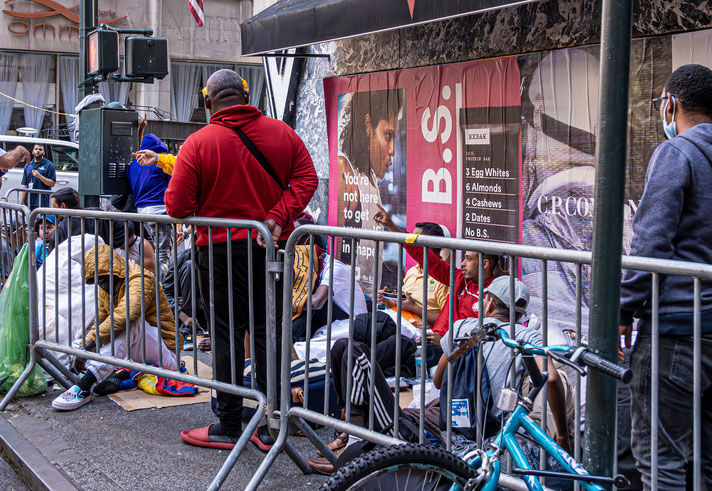
There’s nowhere else in the world that attracts the diverse array of immigrants that New York welcomes every year. Consequently, there is nowhere else that has as much demand for immigration, refugee, and settlement services as New York.
Fortunately, we’ve got compassionate expertise here going all the way back to 1892 when social workers embraced the first new arrivals at Ellis Island. While the destination remains the same, the availability of resources to the huddled masses has gone through a lot of upgrades.
Some of the best choices for social workers serving immigrant and refugee populations here include:
Make The Road New York
Make The Road has centers in Brooklyn, Queens, Staten Island, Long Island, and Westchester to support and elevate immigrants from around the world. With programs advocating for inclusion and support for all people in education, health justice, housing and environmental justice, criminal justice, workplace justice, and transgender, gender non-conforming, and intersex community members, Make The Road serves as a second home to tens of thousands of immigrant and working class people of color.
Anti-Defamation League | New York/New Jersey | Serving New York State, Northern & Central New Jersey
The ADL has been fighting discrimination and bigotry in New York since it was founded in Murray Hill in 1913. The New York/New Jersey chapter remains one of the best resources for social workers tracking and combating hate crimes against immigrants, as well as a vital way to influence legislation and policy for immigrants of both Jewish origin and beyond.
Masa
Masa is a community-lead educational organization aimed at Mexican and Latino children, youth, and families across the South Bronx to provide early childhood education, intensive literacy programs, and after-school tutoring to help ESL and disadvantaged migrant children catch up and maximize their educational potential. With advanced programs like robotics and additional supports for parents and families, Masa helps the next generation of immigrants get to their feet and make the most of new opportunities in America.
Unlocal
Immigration is a process that requires a lot of paperwork and often comes with complications that are impossible for even native English speakers to untangle. Unlocal provides direct legal representation and broader community education to New York’s undocumented immigrant communities to help your clients sort through their options.
Immigration Equality
Immigrants already have the deck stacked against them in American society. But those who are LGBTQ or HIV-positive have a whole extra set of challenges and prejudices to overcome in navigating their new society. Immigration Equality is there to help them, with legal assistance in achieving asylum, navigating healthcare, and coping with detention challenges unique to LGBTQ individuals.
African Services Committee
In the heart of Harlem, this multi-service human rights agency looks out for the interests of immigrants, refugees, and asylum seekers from across the broad continent of Africa. With culturally-appropriate supports for legal aid, healthcare, housing, education, and even nutrition, you can find comfort and aid for your clients from Africa at ASC.
Chinese-American Planning Council
The New York Chinese community is large and well-established, but that doesn’t mean that recent immigrants have an easy time here. The CPC advancing the Chinese and low-income immigrant communities through a combination of education, including adult literacy and high-school dual-language supports, family support, and community and economic empowerment efforts to open the door to better lives.
Resources for Criminal Defendants and Incarcerated or Released Prisoners in New York
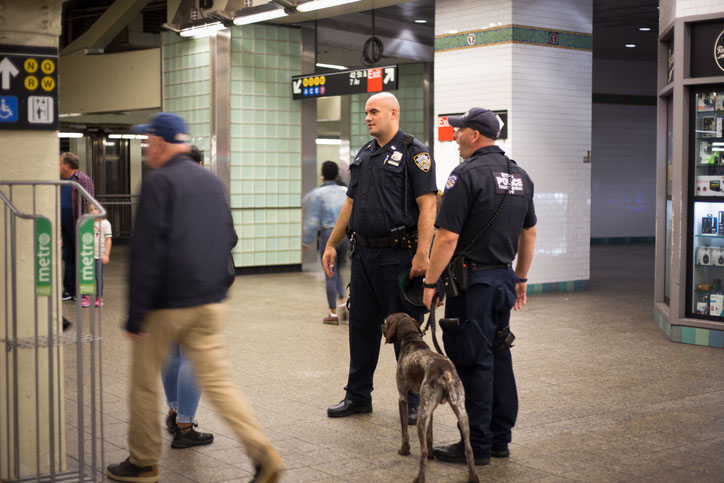
According to 2021 data from the nonprofit Prison Policy Initiative, New York state has an incarceration rate of 317 per 100,000… greater than that of any other developed nation. And while only around 14 percent of the state population is Black, Blacks make up almost half of the prison population. With a criminal record, discrimination against this group becomes legal again. They can be denied work, housing, and even basic civil rights, almost as if slavery had never ended.
New York State Department of Corrections and Community Supervision (DOCCS) holds around 33,000 individuals in custody and supervises another 68,000 on probation.
While forensic social workers take on the lion’s share of work with this oppressed group, the very fact of over-policing in BIPOC and other marginalized populations make it inevitable that almost all social workers will encounter people ensnared or recently exited from the criminal justice system.
These resources will help you get them back on their feet again:
New York Chapter American Civil Liberties Union
The ACLU has been fighting injustice since 1920. New York’s chapter was established in 1951, showing up just in time to fight some of the most significant battles of the Civil Rights movement and abortion rights. They help shape policy at the state and local levels and take on important court cases for social justice that other organizations won’t touch. When your clients are in a corner and no one else will fight for them, this could be the best call you can make.
Correctional Association of New York
Designated by law as the organization responsible for oversight and investigation of New York state correctional facilities and treatment of prisoners, CANY should be in the favorite contacts list in every New York forensic social worker’s smartphone. CANY reporting and documentation is also important to macro social workers, who have used their data to support successful efforts to get rid of capital punishment, mandatory minimum sentences, and improve access to health and mental care for prisoners.
Vera Institute
Vera works nationwide to end the injustice of mass incarceration for people of color, immigrants, and those experiencing poverty. But they are based in Brooklyn and New York has been a focal point for the successful efforts behind bail reform in the Empire State. They are also behind expanded legal representation for immigrants and individuals with disabilities.
Her Justice
Women are uniquely vulnerable in all aspects of the legal system, civil and criminal. Her Justice seeks to shield and defend the interests of women in family, matrimonial, and immigration cases by providing pro bono attorneys to assist them.
The Urban Justice Center
Since 1984, the Urban Justice Center has been fighting the good fight in New York on many different fronts: combating partner violence, fighting discrimination in the justice system, and seeking to decriminalize homelessness.
Survived & Punished New York Affiliate
Survived and Punished exists to support survivors of domestic and sexual violence who have been incarcerated despite their victimization. Frequently forced into criminal acts, these survivors are further punished by a criminal justice system that refuses to recognize their lack of agency. As part of a national coalition working on behalf of these victims, this resource fights excessive prison terms, lobbies for mass commutation, and provides support to survivors through visiting programs and direct contributions.
Resources for Unhoused Individuals and Families in New York
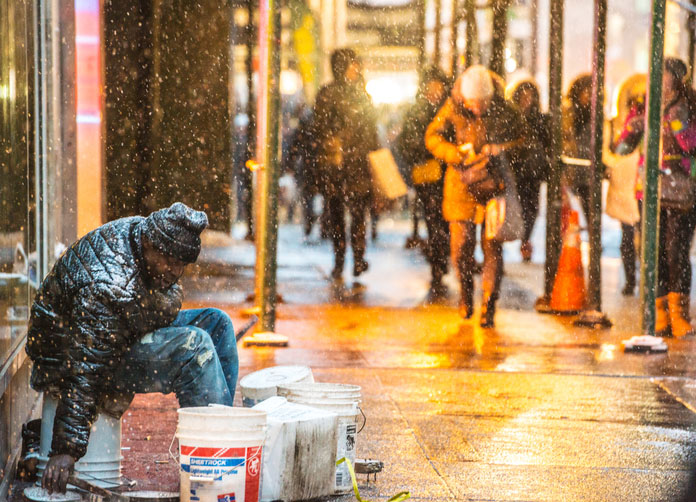
New York state has the highest rate of homelessness in the country, with around five out of every one-thousand residents having no permanent shelter for themselves, their families, or their belongings.
The roots of this crisis are complex and won’t be quickly solved. A combination of new waves of immigration, skyrocketing housing costs, and limited availability are thrown into a blend with old-fashioned racism and economic disparities that keep people from permanent shelter. This, in turn, creates myriad problems in the simplest aspects of everyday life that most people can’t understand, from getting health care to opening a bank account.
According to 2023 data from the Coalition for the Homeless, the number of people spending the night in temporary shelters rather than permanent housing in New York is at an all-time high.
Social workers are frequently the people who are responsible for offering stop-gap solutions to this tragedy, helping clients find temporary shelter and dealing with all the issues that commonly come with being unhoused. They are also the advocates who are most vocal about the need to change policies and create affordable housing to provide long-term solutions that get people off the streets.
These resources will help you fight the battle on both fronts in New York.
Coalition for The Homeless
You won’t find any organization in New York that has done more on every front for the unhoused than this nonprofit. As the oldest advocacy and direct services organization for homelessness in the country, they have programs on tap for people being evicted, those facing food insecurity, people fleeing domestic violence with no place to go, and disabled individuals experiencing homelessness.
The Bowery Mission
The Bowery became almost synonymous with neglect and urban decline from the late 1800s through the 1970s. Founded in 1879, the Mission offers direct assistance in the form of food and shelter to the homeless here. More recently, it delivers medical care and offers recovery assistance for substance use disorder patients.
Women in Need
Safety and security on the streets is particularly challenging for women and families, which is why Win focuses on this extra-vulnerable homeless population. With 16 shelters and over 450 supportive housing units throughout the city, it’s the largest provider of family shelter in the five boroughs, and your first call when you have clients in need.
BronxWorks
BronxWorks is one of a contingent of traditional settlement houses that has survived and thrived in the modern era, offering a wide range of services to individuals and families improving their economic and social well-being. Of particular interest for social workers are their adult and family homeless services, offering outreach and shelter options that can take in up to 360 homeless families each night.
Project Renewal
Project Renewal’s approach to ending homelessness runs through uniquely integrated rehousing efforts that combine health, shelter, and jobs for more than 15,000 New Yorkers in need of assistance each year.
Habitat For Humanity New York
The ultimate solution to homelessness, of course, is to have a home for everyone. Slowly but surely, Habitat works toward that goal across the country by securing land, building houses, and putting people in them. The New York state-level organization can put you in touch with local affiliates to help you connect clients with their long-term goal of owning a home of their own.
Resources for Marginalized Youth, Children, and Adolescents in New York
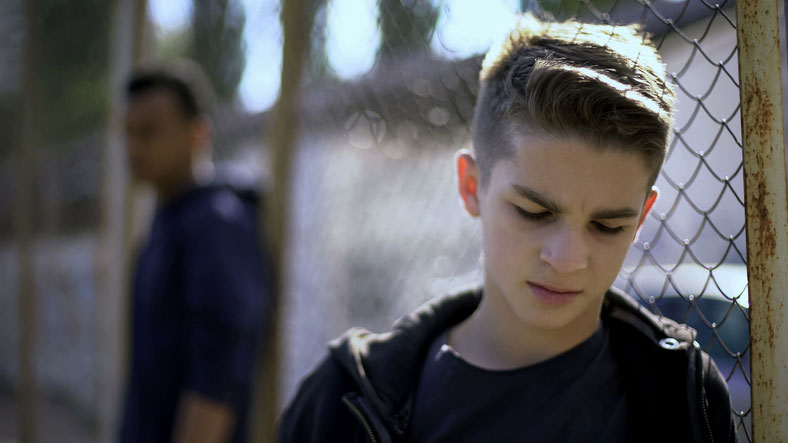
At the margins of almost every other type of marginalized population in New York are the kids. Without a voice and without agency to chart their own course, this is the population that is most heart-breaking for social workers to see. It’s also the group that you will fight hardest to help. With their lives ahead of them, every inch of improvement changes the whole world.
These resources offer a variety of different ways to assist you in getting kids from various marginalized and neglected populations the help they need to live normal, healthy, productive lives in New York.
Harlem Grown
Let’s face it, a lot of city kids haven’t seen much that grows beyond weeds. Yet psychologists and health professionals have a growing body of research showing that human well-being increases with closer connections to nature. Harlem Grown helps grow healthy kids and sustainable communities, combining urban farming and social justice by turning abandoned lots in Harlem into thriving farms, tended by the community’s children.
Kids N Culture
Although New York kids get a lot of culture brought right to their doorstep, few of them from underprivileged families get a shot at going to see the native cultures of other parts of the world. Kids N Culture aims to change that. Their travel programs combine kids, that could include your clients, from around the city on overseas trips where they can experience the world firsthand.
Girls Write Now
Breaking down the barriers of gender, race, age, and economic status comes through the written word in this innovative program that fosters creativity, collaboration, and self-confidence for cis women, transgender, non-binary, 2Spirit, genderqueer, and other young adults for disadvantaged backgrounds. Through community workshops, one-to-one mentoring, and performance and publication, those who haven’t had a voice for much of their lives are helped to find one and speak their truths.
TEAK Fellowship
Social workers know that just coming from lower on the socioeconomic spectrum doesn’t mean kids are less intelligent or less motivated. But it does mean that kids who are highly intelligent often lack opportunities to put their intellect to its full potential. TEAK counters that by offering programs that help talented middle school students prepare to enter the country’s most selective high schools and colleges.
Fresh Youth Initiatives
Kids are adaptable, but for low-income immigrant children, America represents a dual challenge. Not only do they have to navigate a new world, but they are often still forced to cope with the old as translators, caretakers, and explainers for their parents. Working with immigrants and first-generation kids in North Manhattan, FYI focuses on education, development, mental health and wellness, and family supports to deliver on the promise of new lives in America.
Covenant House New York
Kids are the most vulnerable population and so it’s no surprise that they are taken advantage of more than any other on the streets and in trafficking operations. Covenant House helps shelter those vulnerable souls and give them a hand out of dire circumstances. They offer emergency shelter, legal services, and health and wellness treatment to deal with immediate needs. But going one step further, their youth and workforce development services also help kids from the streets develop their own strengths and capabilities to live and thrive independently despite their troubled beginnings.
